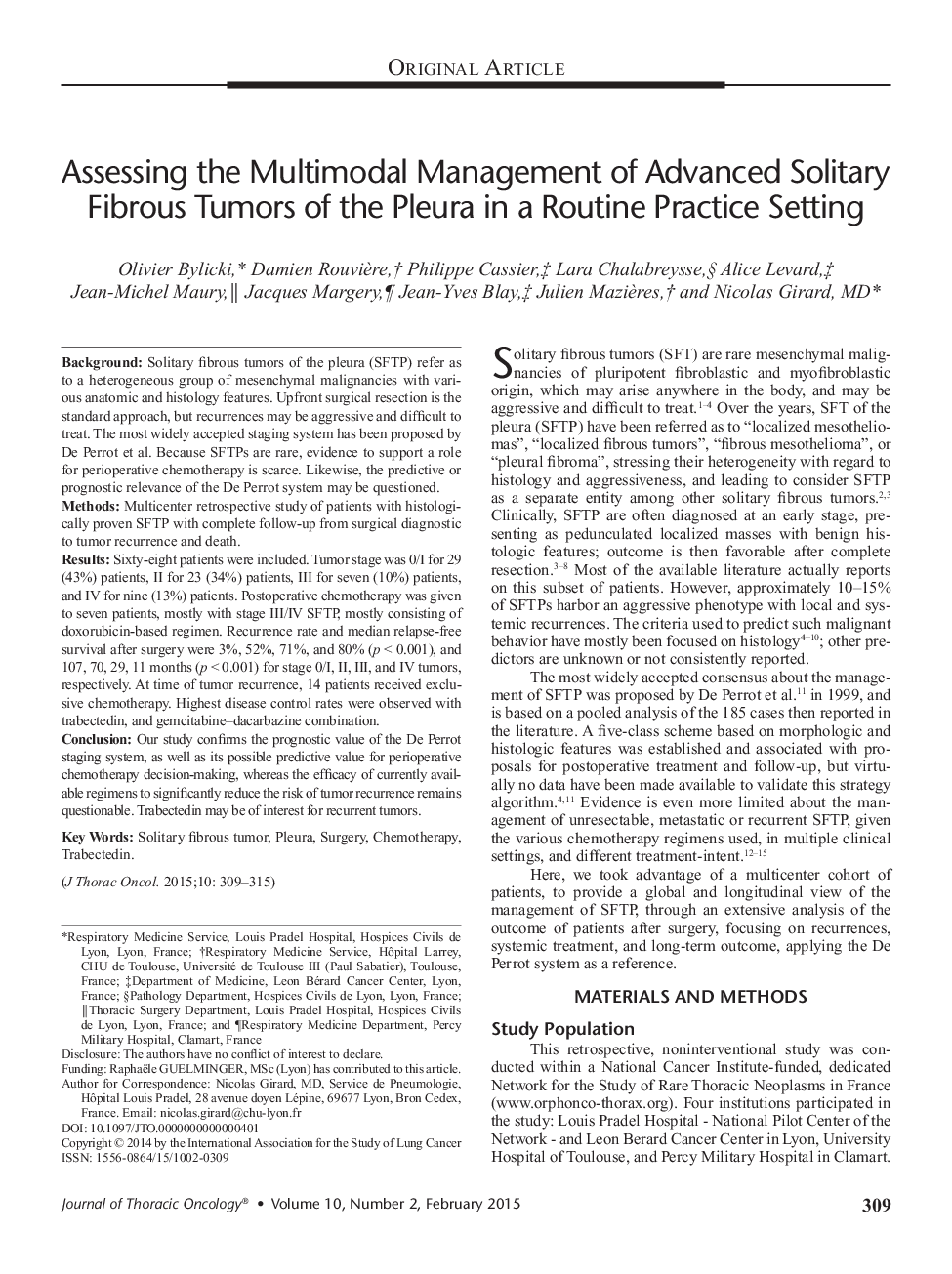| Article ID | Journal | Published Year | Pages | File Type |
|---|---|---|---|---|
| 6193212 | Journal of Thoracic Oncology | 2015 | 7 Pages |
BackgroundSolitary fibrous tumors of the pleura (SFTP) refer as to a heterogeneous group of mesenchymal malignancies with various anatomic and histology features. Upfront surgical resection is the standard approach, but recurrences may be aggressive and difficult to treat. The most widely accepted staging system has been proposed by De Perrot et al. Because SFTPs are rare, evidence to support a role for perioperative chemotherapy is scarce. Likewise, the predictive or prognostic relevance of the De Perrot system may be questioned.MethodsMulticenter retrospective study of patients with histologically proven SFTP with complete follow-up from surgical diagnostic to tumor recurrence and death.ResultsSixty-eight patients were included. Tumor stage was 0/I for 29 (43%) patients, II for 23 (34%) patients, III for seven (10%) patients, and IV for nine (13%) patients. Postoperative chemotherapy was given to seven patients, mostly with stage III/IV SFTP, mostly consisting of doxorubicin-based regimen. Recurrence rate and median relapse-free survival after surgery were 3%, 52%, 71%, and 80% (p < 0.001), and 107, 70, 29, 11 months (p < 0.001) for stage 0/I, II, III, and IV tumors, respectively. At time of tumor recurrence, 14 patients received exclusive chemotherapy. Highest disease control rates were observed with trabectedin, and gemcitabine-dacarbazine combination.ConclusionOur study confirms the prognostic value of the De Perrot staging system, as well as its possible predictive value for perioperative chemotherapy decision-making, whereas the efficacy of currently available regimens to significantly reduce the risk of tumor recurrence remains questionable. Trabectedin may be of interest for recurrent tumors.
